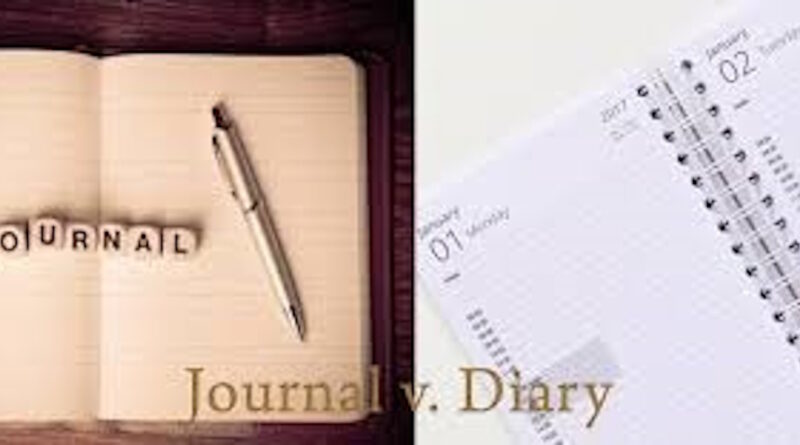A Journal
by Raquel Torres
What is Journaling? A journal is a personal record of events, thoughts, experiences, goals, and so much more. The content in a journal is written as they come to mind, unlike a diary which is a daily activity.
written as they come to mind, unlike a diary which is a daily activity.
Differences Between Journal and Diary:
- Diaries are chronological. This is because a diary records the feelings, activities, and events a person experience daily.
- Journals are not chronological and do not follow a specific pattern or order. When you have a journal, you write down whatever comes to mind at that particular time.
- A journal is more personal than a diary. This is because it contains detailed descriptions of a person’s thoughts and feelings.
- A diary is not personal as it contains logs from the everyday experiences of the writer.
A 2015 research paper explains that consistent expressive writing may help reduce PTSD symptoms. It also suggests that writing at length about a traumatic or stressful event can help manage PTSD symptoms.
How to start journaling?
 One of the best things about journaling is that it’s accessible. You don’t need to run out and buy a special journal to get started — although if you find it motivational, you can. All you need is some paper, a pen, and a little time.
One of the best things about journaling is that it’s accessible. You don’t need to run out and buy a special journal to get started — although if you find it motivational, you can. All you need is some paper, a pen, and a little time.
Consider what time of day you’re most likely to stick with a journaling practice. It might be first thing in the morning, late at night, or at a specific time during your workday. Try not to worry about sticking to a consistent time every day. Journaling can fit your schedule.
Why is Journaling Good for You? Journaling is a widely used non-pharmacological tool for coaching and counseling and the treatment of mental illness.
Keeping a record of personal thoughts and feelings is particularly helpful in supporting mental health by (WebMD.com, 2021):
- Reducing anxiety
- Breaking away from a nonstop cycle of obsessive thinking and brooding
- Improving the awareness and perception of events
- Regulating emotions
- Encouraging awareness
- Boosting physical health
The positive effects of journaling can even be felt when not performed daily – helping the individual better understand their needs and boosting their wellbeing.
Image of wooden table with journaling paper by Mikhail Nilov from pexels.com and image of Diary with pen provided by author.
Raquel Torres, MBA is a USAT Elite Certified Coach, Professional Triathlon Coach and Professional Triathlete. Raquel also writes blogs for several magazines and her team Athletic Mentors. Since May 2021 she contributes as a columnist with CNY Latino Newspaper. She shares true life stories with her experiences, also tips and tactics that helps anyone to be their best version. To read about her, head over to cnylatinonewspaper.com and search for her by her name. You can also send questions or comments about her column to the following email: raquel@athleticmentors.com and go to her website at www.raqueltorres.org
several magazines and her team Athletic Mentors. Since May 2021 she contributes as a columnist with CNY Latino Newspaper. She shares true life stories with her experiences, also tips and tactics that helps anyone to be their best version. To read about her, head over to cnylatinonewspaper.com and search for her by her name. You can also send questions or comments about her column to the following email: raquel@athleticmentors.com and go to her website at www.raqueltorres.org
